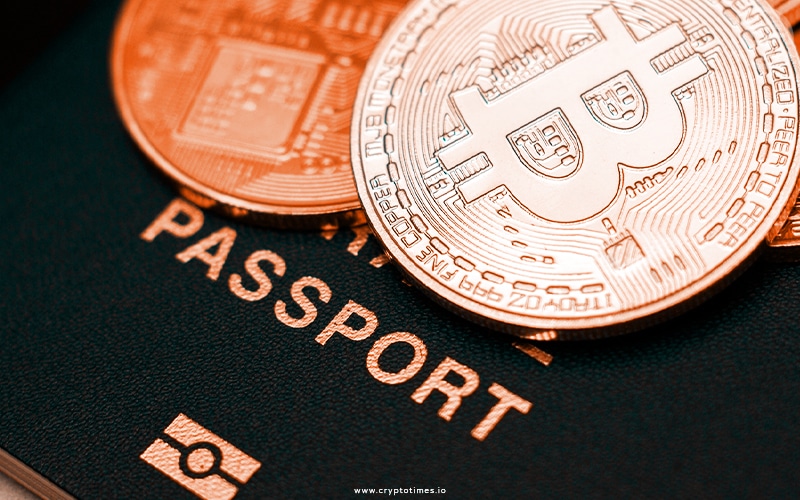Undoubtedly, cryptocurrencies have become a popular investment and a method of earning a fortune in the last couple of years. And this is when the Citizenship by Investment programs come into play. Many countries have implemented CBI programs where foreign investors can obtain alternative citizenship through investing in one of the several options.
The most common investment options in the CBI programs are real estate, government bonds, government funds, or enterprise projects.
CBI programs empower crypto investors and entrepreneurs to invest in dual citizenship and enjoy the tax benefits and ease of travel to many countries. These, and many other reasons, encourage crypto investors to apply for a second passport in a crypto-legal country.
Crypto-Friendly Countries
The Caribbean countries are considered some of the most crypto-friendly countries worldwide. For instance, the Caribbean countries Citizenship by Investment programs allows citizens to pay with crypto for the application process of securing a second passport, through which the government transfers the money into US dollars.
Kitts and Nevis
St. Kitts and Nevis operate one of the oldest CBI programs in the world. Crypto payments started as a commercial service that allowed citizens to buy a beer with crypto. Soon enough, the country started inviting foreign investors to apply to the CBI program to obtain dual citizenship.
Even though this island country has no specific legislation for regulating crypto transactions, it has signed up for the ECCB pilot scheme to test the use of crypto with the national currency.
Roger Ver, the father of bitcoin, has become a St. Kitts citizen and renounced his US citizenship in 2014. He’s a strong believer and investor in blockchain technologies that would help the country to implement crypto transactions further.
Vanuatu
Vanuatu is a crypto-friendly island country that imposes no taxes on capital or personal gains through crypto assets. Currently, Vanuatu doesn’t allow obtaining citizenship by investing directly in cryptocurrency. This means no one can get a Vanuatu passport by investing in bitcoins.
Some reports circulated in 2017 that Vanuatu had begun accepting crypto in its CBI program. The news, however, was not true as the country’s government website clearly says that Vanuatu doesn’t recognize or accept any payments made in crypto as an investment for citizenship.
Nevertheless, investors for citizenship can still use digital assets to prove the legality of income and money for the investment.
In 2018, the stock exchange license was issued as a certificate for the crypto exchange to be done in Vanuatu. Recently, the government in Vanuatu launched a digital currency called Volcano for local use in the country.
Copyright: OpenClipart-Vectors on Pixabay I License: CC0 Public Domain
Antigua and Barbuda
Antigua and Barbuda is another Caribbean country with a crypto-friendly system. Even though it doesn’t have specific legislation regulating crypto transactions, it works towards implementing crypto and blockchain for future economic development.
In 2018, the government in Antigua and Barbuda announced that the country would be using Bitcoin legally as a form of payment in the Citizenship by Investment Program. And in 2019, the Barbados fintech company, Bitt, and the ECCB Eastern Caribbean Central Bank signed a contract to issue a digital currency within the currency union in the Eastern Caribbean region.
Other Caribbean Countries
The rest of the Caribbean countries, like Grenada, Dominica, and Saint Lucia, do not have any laws and legislation terms regulating digital currencies. Dominica still has an unpopular and controversial opinion regarding crypto, especially Bitcoin.
Most recently, Dominica collaborated with crypto exchange Huobi to jointly launch the world’s first national token, Dominica Coin (DMC), on Tron and Digital Identity (DID). The move clearly suggests that it might begin to recognize cryptocurrencies or at least be part of evolving digital assets space.
Second Passport Benefits
The benefits of obtaining a second passport are various. Crypto investors enjoy many opportunities, from total travel freedom to tax optimization. A second passport will come in handy with the visa-free movement to more than 100 countries, where investors can attend business meetings, operate a new business office in a foreign country or simply travel for holidays.
- Tax Optimization – there are 0 taxes for crypto investors. For instance, Antigua, Barbuda, St. Kitts, and Nevis have 0% taxes on personal income and capital gains. While Grenada, Dominica, and St. Lucia have 0% on capital gains and foreign income only;
- Avoiding political instability – a second passport allows crypto investors to avoid any civil unrest and relocate to a country with a stable environment;
- Investment and banking opportunities – the crypto investors can conduct business in a foreign country, purchase a property or invest in opportunities limited to foreign nationals;
- Visa-free traveling – the ability to travel without a visa, or visa on arrival, shortens the time of obtaining a visa and dealing with all the paperwork. It provides hassle-free traveling;
Also Read: Plan B Passport Helps Americans to Keep more of Bitcoin Profit
The Future Looks Bright
Of course, it looks bright with many advantages that ease traveling worldwide and conducting business in foreign countries. The world is becoming increasingly interconnected, making it easier for all to work internationally and invest in blockchain technologies.
Till now, we have established that some Caribbean countries have already begun allowing bitcoin and other cryptocurrency payments for the CBI program. There’s a possibility that more countries will allow crypto as a payment method to make their CBI program inclusive.






